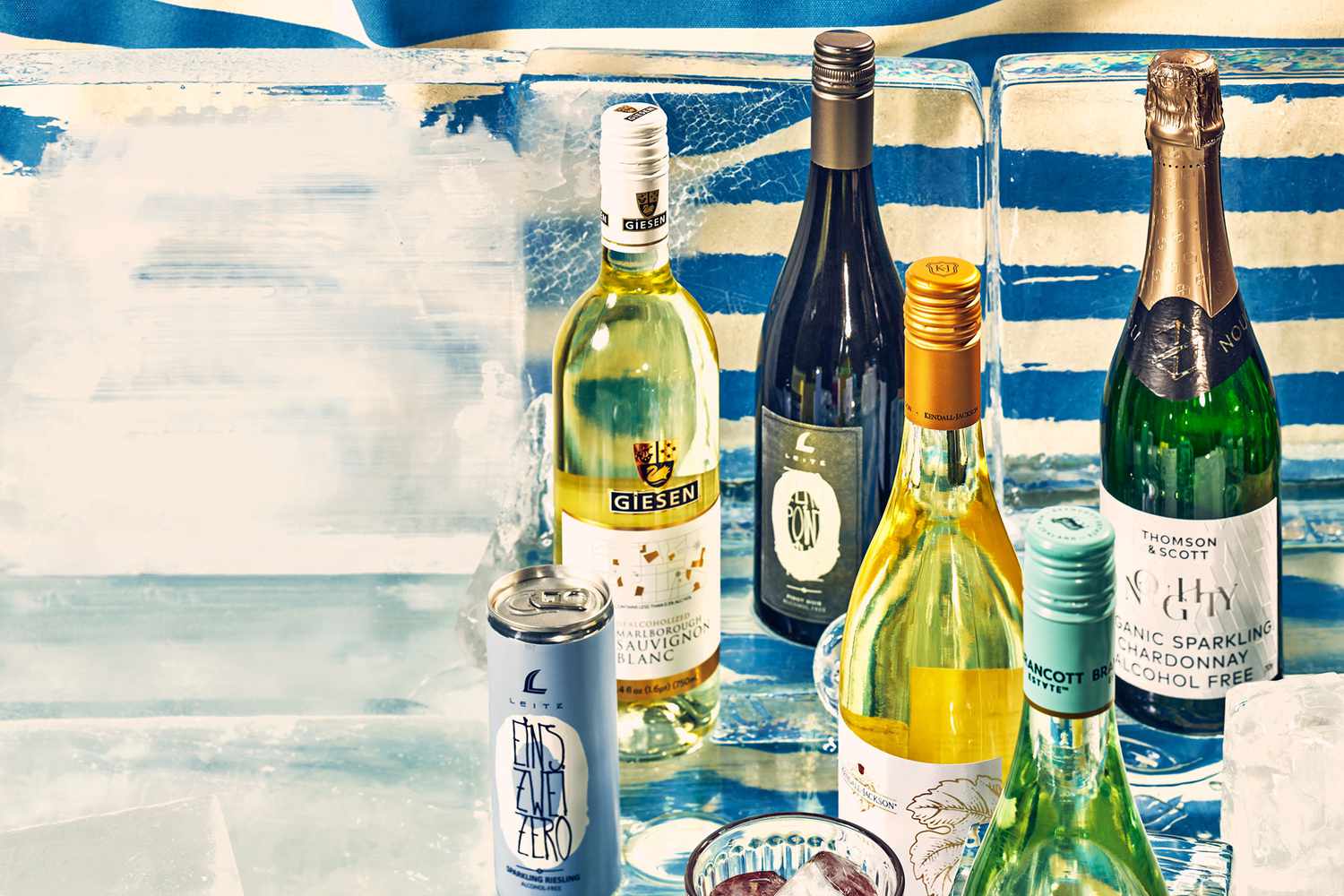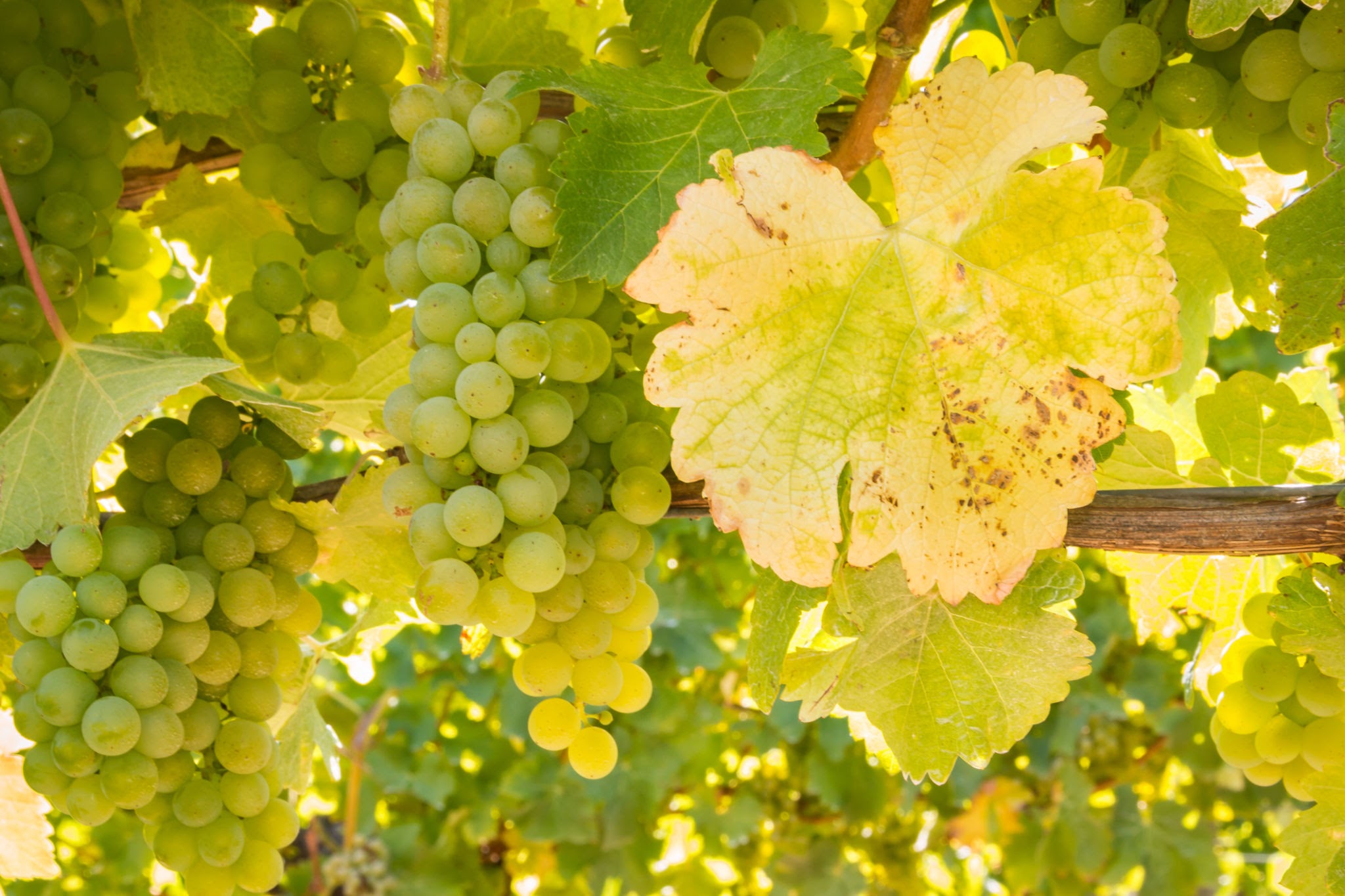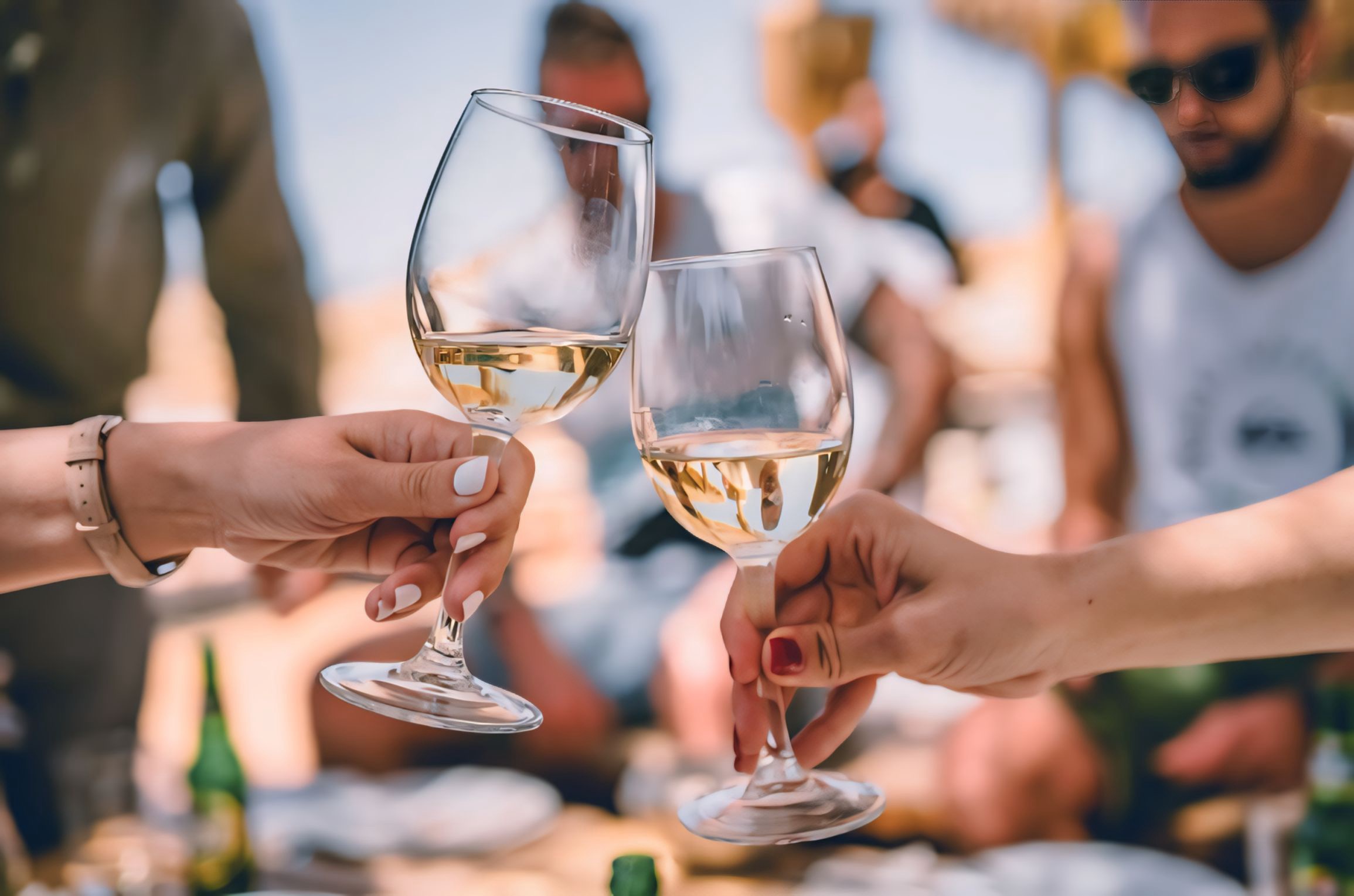

In 2024, more than 5 million people participated in the Dry January in France. This month of sobriety, which gains popularity every year, reflects a significant change in our consumption habits. The French, notably 44% of 18-25 year olds, are paying increasing attention to their alcohol consumption, motivated by health concerns. This evolution is also reflected in a decrease in alcoholic beverage sales, down by 6.4% compared to January 2023. However, far from completely quitting alcohol, it is rather the idea of becoming a “flexitarian” of alcohol that is appealing, in favour of a moderate consumption. To meet these new practices, the wine industry is developing an interesting alternative: no or low-alcohol wines, also coined as No-Low or NoLo wines.
What is No-Low wine? It simply refers to an alcohol-free wine (“no”) made in the same way as traditional wine. It then undergoes a process to remove the alcohol, often through distillation. Thus, the beverage retains its flavours and the distinctive taste of grape fermentation. A wine is designated as alcohol-free as soon as it is below 0.5 degrees, whereas a light wine (“low”) is below 10 degrees. Augustin Laborde, founder of Le Paon qui Boit, a Parisian cellar specializing in alcohol-free wines, explains in La Revue du Vin de France that “dealcoholized wines are more interesting to our customers because they are used to tasting wine and enjoy rediscovering that little taste of fermentation.”

When we look at the new names that this trend is introducing, our first question is about the descriptive name of such product type: how to name a drink that has undergone the fermentation of a classic wine, which contains grapes but from which the alcohol has been removed? If the word “wine” is often used, it is followed by the mention “alcohol-free” or “dealcoholized”. It is therefore still possible to use, sometimes circumvented with alternative terms: “beverage”, “blend”, “alternative”, “alcohol-free” but also the word “virgin” (“Virgin Rosé”), by analogy with mocktails (like the “Virgin Mojito”). However, wine vocabulary remains very present to anchor it in the category: “sparkling”, “fizzy”, red/white/rosé profile or even the name of the grape variety, such as Chardonnay.

So how do we name an alcohol-free wine brand? We looked at the brand names of alcohol-free wines, analysing 31 offers currently on the market. And from this linguistic analysis, we have observed two tensions emerging in structuring the new category.
What is the balance between modernity and tradition? What is the degree of relationship to the wine reference universe? What is the stance regarding the “without” alcohol? Is it a “less” product, a wine from which something has been removed, or is it a promise of “more”, an additional attraction? In relation to the two tensions, we see the emergence of 4 major naming approaches:
Toponyms
Predominant types of names, toponyms refer to specific regions or places, thus reassuring consumers about their origin. Names of historically acclaimed wine estates, such as Le Domaine de l’Arjolle, de Broüard, de Ribeauvillé or de Rochefort, facilitate information retrieval and positive associations for consumers. Uby, Muri, or Hans Baer also correspond to this trend, evoking distinctive places or symbols. Names entirely dedicated to 100% alcohol-free wines, such as Villa Martelle and Villa Chavin, add a touch of prestige by evoking vast vineyards and luxurious houses thanks to the word “Villa”.
In this family, the alcohol-free aspect is then transcribed with an added mention which takes on various forms: 0, zero, 0% alcohol, zero alcohol, or dealcoholized.

Patronyms
These patronymic wines, such as La Côte de Vincent and Loëffler, highlight first names or surnames. They evoke know-how and transmission, traditionally associated with the world of wines. The use of first names creates proximity, while surnames highlight a family heritage. These designations, marked by their geographical origin, strengthen their connection to a specific terroir. Vincent is typically French and Loëffler is of German origin.
Here again, the alcohol-free aspect is noted on the label, below the name: “alcohol-free” or ” beverage based on dealcoholized red wine”.
For toponymic and patronymic wines, the use of classic wine names will allow them to remain close to the traditional image of wine. The alcohol-free aspect will then be only emphasized on the label.
The Little Things
These names subtly evoke the notion of reduction, while creating proximity with the consumer through the idea of the traditional “little glass of wine”.
Le Petit Béret directly refers to French culture while implying that the wine has undergone a transformation, as it is “smaller”. This same process is used for Le Petit Chavin, which uses the expression “le petit…” (“the little”) followed by a last name. Le Petit Étoilé evokes the idea of a rewarded drink, akin to a starred chef. The adjective “petit” gives it an accessible character. It is subconsciously associated with the cosmos, the stars. It evokes a calm and peaceful moment that is undisturbed by the effects of alcohol.
The names therefore combine tradition and proximity. They highlight elements of French culture and by associating the adjective “petit” with the absence of alcohol.
These wines name the alcohol-free aspect in different ways: “alcohol-free, 0%”, “alcohol-free” or “0.0 alcohol-free”. This is a way to differentiate themselves by emphasizing the degree and perhaps recalling a surprised emoji.
The Traditional ‘O’
Other brands, while staying anchored in a traditional wine and vineyard lexicon to reassure consumers about the origin, add a touch of modernity and originality by playing graphically and phonetically with the O and the zero.
Chavin zero evokes the world of vineyards and refers to French origin as well as terroir. The zero almost becomes a surname, as with Pierre Zéro Signature, where the brand highlights the alcohol-free aspect directly in the name. Sarment.o evokes the vineyard in Portuguese with a nod to zero, just as Rib.O transforms the “o” sound of Ribeauvillé into zero. Beyond “zero alcohol”, the O becomes the promise of a light moment, like a party bubble.
This second vision remains very rooted in the tradition of wine. It initiates a beginning of a specific story of “alcohol-free wine”, where lightness predominates.
The Moderated Ones
Some brand names proudly assert moderation, which recalls the adage “drink in moderation”.
In the wine Moderato, the consumer perceives moderation, a direct reference to alcohol consumption becoming more balanced. In Tempera, it is rather temperance that is heard, a literary denomination to evoke the moderation of pleasures. These two names with Latin connotations evoke measure in a joyful and lively way.
These wines will choose to note “alcohol-free” and “non-alcoholic” on their label.
The Bold Zero
Some brands go even further in asserting the alcohol-free aspect. More moderation: zero is strongly emphasized with names that stand out.
Nooh from Château La Coste and Kolonne Null fall into this logic. Nooh is composed of both No and Oh, the molecule of alcohol. It’s a clever way to say it all in the name. The Alt of alternative is very direct, and reminds of the word “halt” – to alcohol consumption.
This time, the opposition is even stronger: the brands affirm the null, the zero, the alternative, and the change in strong contradiction with traditional wines.
The Liberated Ones
A series of alcohol-free wine brand names relies on English expressions. Beyond the distance taken from the dominant French lexicon, carrying authenticity, the messages claim unrestricted consumption. They convey an idea of freedom.
Low Matter What twists the expression “no matter what” to evoke the No-Low trend. The “low” helps to remind that this wine is designated as light because it is at 6 degrees. This expression also invites the consumer to think of all the moments when drinking becomes easier. Without constraints on the number of glasses or hours before driving, freedom becomes greater.
The expression “no limit” is now used in the service of alcohol-free to evoke this feeling of emancipation. No Limit wine is a way to divert the recommendations around wine that we know (“no more than two glasses a day and not every day”).
These names thus evoke a “uninhibited” dealcoholized wine, for a target audience who wants to continue drinking but without the unpleasant effects.
The New Lives
The brand names and expressions in this category celebrate in a positive way a new type of experience, made possible by the removal of the alcohol.
Bonne Nouvelle (“good news”) evokes happy omens for those who appreciate the taste of wine but do not consume it for various reasons. Bon Voyage suggests a convincing reason to drink alcohol-free wine, promising a serene journey and an enriching sensory experience. À la Vie recalls a toast raised during festivities, but exclusively with alcohol-free, offering increased vigilance on the road while preserving the pleasure of the party. Feliz, meaning “happy” in Spanish, evokes wishes of happiness and French Bloom promises a peaceful and fulfilling moment. With these wines, it is no longer necessary to count the glasses consumed, making festive moments simpler and happier. They thus invite us to live a pleasant experience, recalling the famous slogan: “without alcohol, the party is wilder”.
This new category of no-low alcohol-free wine, or NoLo, emerges by exploring two distinct paths. On one hand, brands break free from alcohol, and on the other hand, they strengthen the connection with it. The category thus offers the possibility of reinventing and updating the narratives around the wine imaginary.
These NoLo wines therefore represent valuable opportunities for brands, allowing them to create innovative names while being part of a growing movement.
A Labbrand Group Company © 2005-2025 Labbrand All rights reserved
沪ICP备17001253号-3To improve your experience, we use cookies to provide social media features, offer you content that targets your particular interests, and analyse the performance of our advertising campaigns. By clicking on “Accept” you consent to all cookies. You also have the option to click “Reject” to limit the use of certain types of cookies. Please be aware that rejecting cookies may affect your website browsing experience and limit the use of some personalised features.